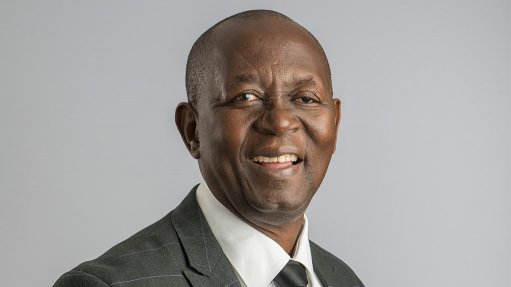
HAMILTON NXUMALO Rapid technological change is driving companies to rethink their business strategies
State-owned company Transnet National Ports Authority (TNPA) is creating a smart port system, in line with global automation and artificial intelligence (AI) trends, says TNPA infrastructure and port planning GM Hamilton Nxumalo.
“We are transforming our ports into smart people’s ports, harnessing world-class technology and opening the ports for local communities and businesses to participate in port activities and opportunities.”
He says rapid technological change – including automation, AI and augmented reality – is transforming the maritime industry and driving companies, including TNPA, to rethink their business strategies.
TNPA wants to create a smart, safe and secure port system that will have the infrastructure and capacity to promote economic growth, job creation, transformation and sustainable benefits for port communities, Nxumalo adds.
He adds that TNPA’s Smart People’s Ports Programme is an efficient, data- and information-rich ecosystem that connects port assets, port employees, terminal operators and the port community, including road and rail.
TNPA is considering technology that includes aerial and underwater drones; track and trace technology to track port assets, such as tugs and dredgers; sensor technology to provide port and terminal performance management data, including capacity utilisation, berth occupancy, port limit access and civilian count during surveillance and security management; smart meters; and three-dimensional printing.
Further, Nxumalo says shipping lines are increasingly using megaships to decrease costs and to meet expected growth in demand. There is a requirement to manage this huge capacity on arrival, as it not only affects truck movements, train movements and yard occupancy but also exacerbates the movement of harbour bed material in basins and at berths.
TNPA is, thus, focusing on increased automation and using technology to better handle the situation of shipping lines increasingly using megaships. “We are progressing with numerous projects to create adequate water depth, introduce new equipment and infrastructure, and improve labour productivity to handle high-volume calls by big ships,” Nxumalo adds.
Skills Development
One of the challenges facing the maritime industry is essential-skills shortages. “We cannot achieve our goals for development of the port system without having the requisite skills in place,” Nxumalo points out.
He emphasises that TNPA remains determined to keep developing its own and external marine capability by addressing “mission-critical skills” that will help TNPA to cater for the needs of the Southern Africa port system. State-owned freight utility Transnet’s Maritime School of Excellence is based in Durban and trains young South Africans in various aspects of port and marine operations, Nxumalo highlights.
“Training people to join our marine and dredging divisions is an integral part of TNPA’s transformation agenda in terms of the Market Demand Strategy,” he says.
Transnet launched the R300-billion strategy – of which R56-billion was allocated to TNPA – to create capacity ahead of demand, in 2012.